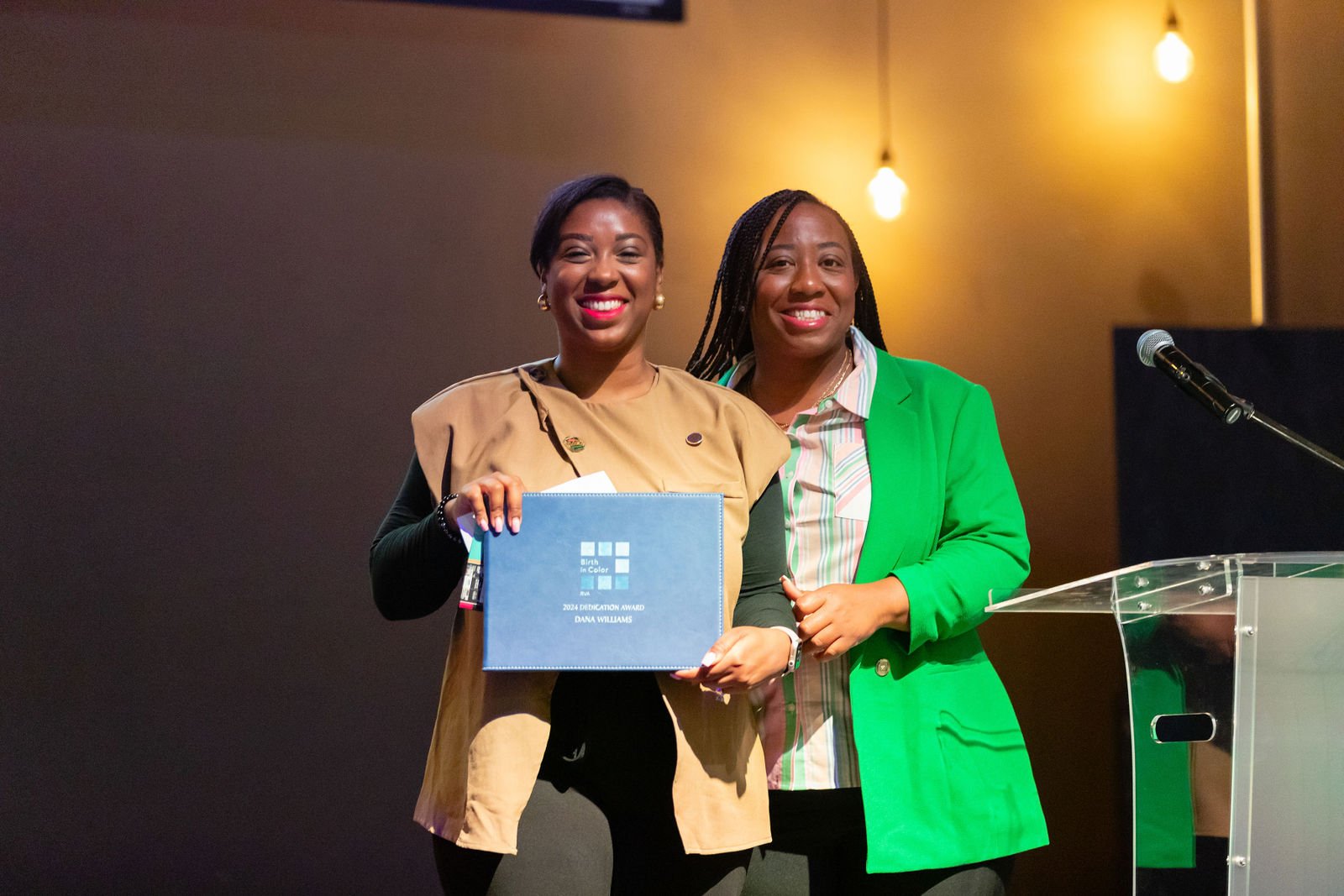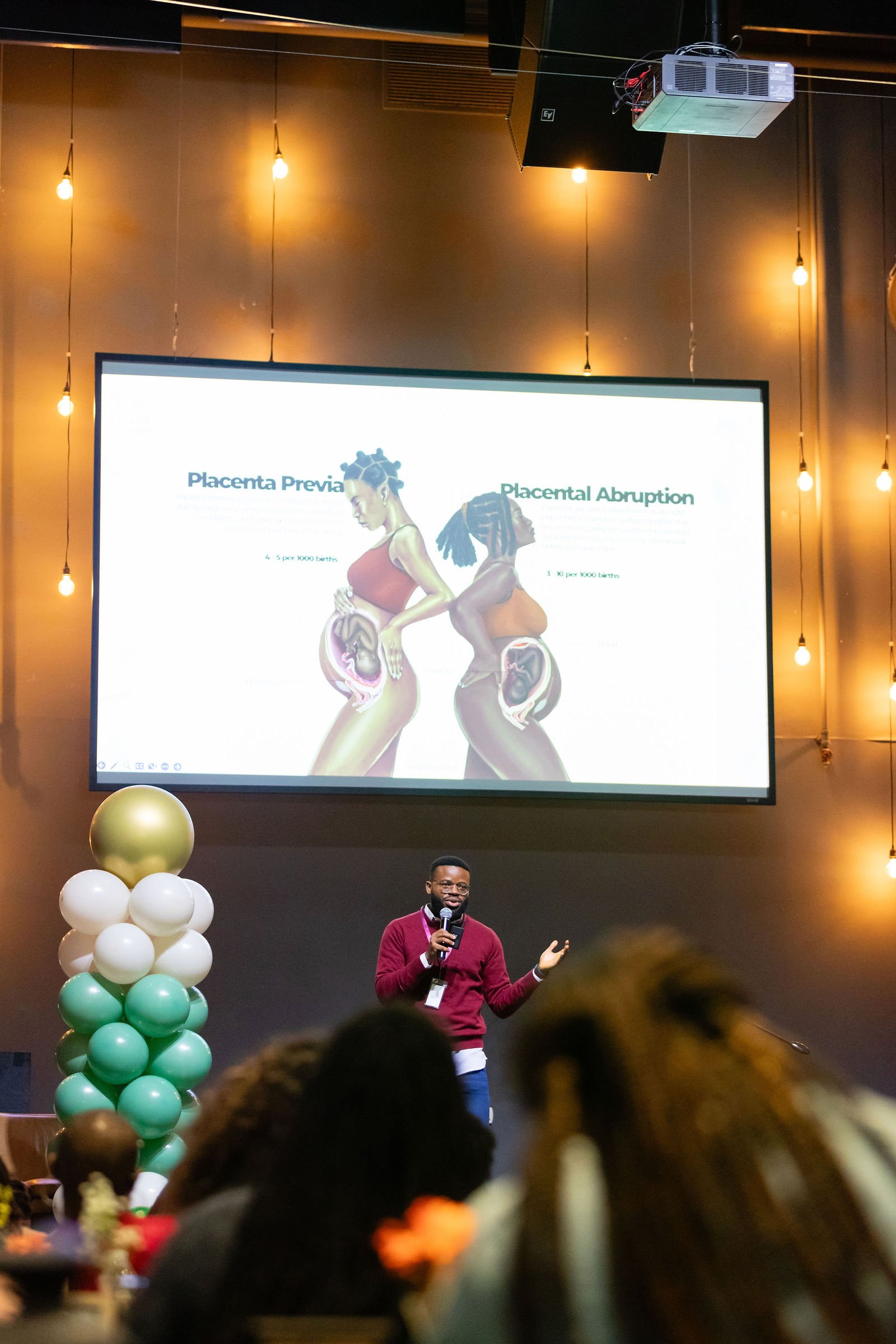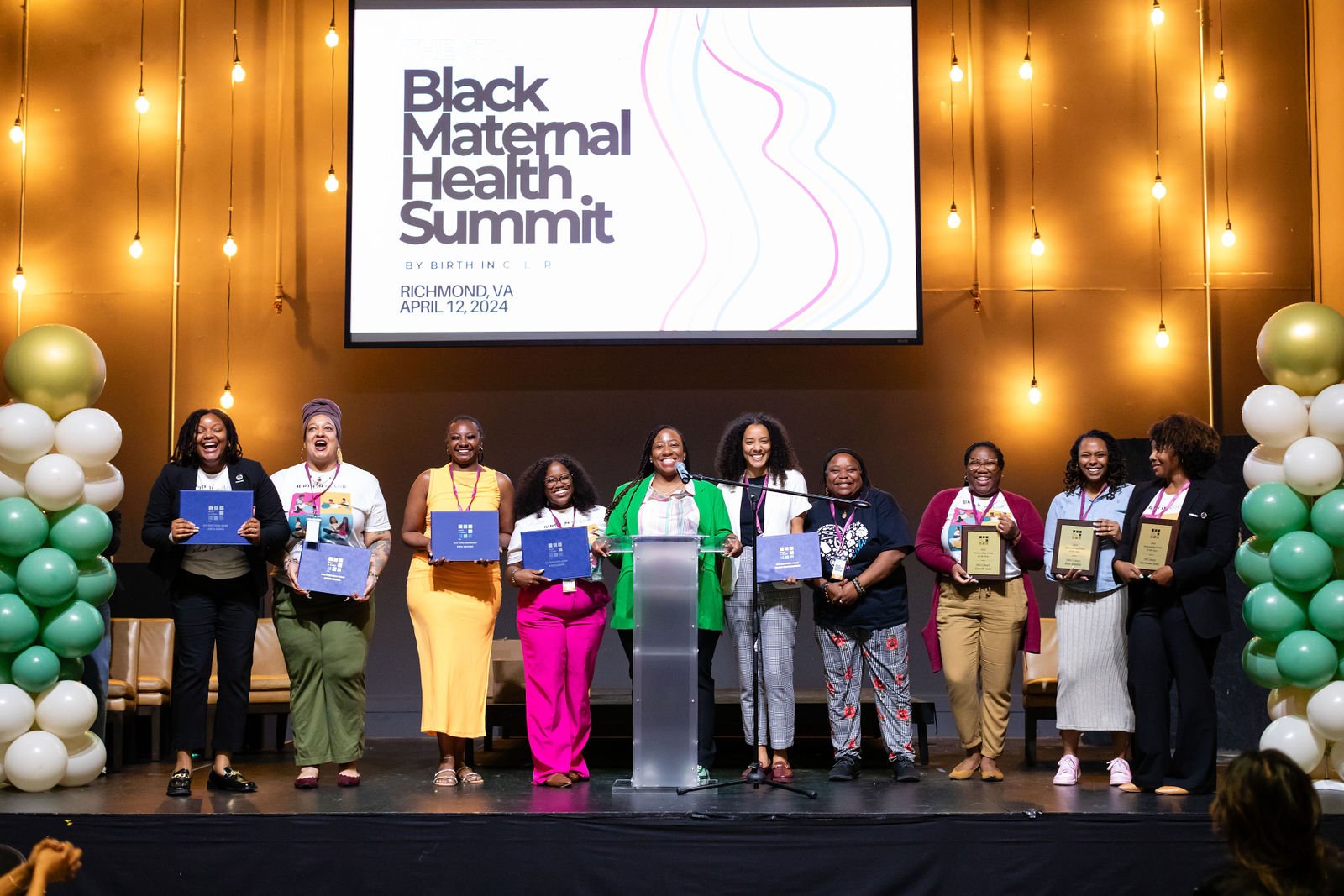Empowering Change: A Recap of the 2024 Black Maternal Health Summit
RICHMOND, VA — Birth in Color's 6th Annual Black Maternal Health Summit brought together advocates, healthcare professionals, policymakers, and community leaders to address the urgent need for equity in maternal healthcare.
Addressing the Need for Institutional Change
For decades, Black women in the United States have confronted alarming disparities in maternal health, experiencing disproportionately high rates of maternal mortality and morbidity compared to their white counterparts. These disparities stem from systemic inequities deeply entrenched in the healthcare system, rooted in a history of racism and discrimination. The result is unequal access to quality care and support for Black birthing people, perpetuating a cycle of maternal health injustice.
Amidst these challenges, Birth In Color emerged in 2018 with the mission to confront disparities head-on. Dedicated to advocating for comprehensive services, cultural competency in healthcare, and policy initiatives, we are committed to fostering inclusivity, empowerment, and community engagement. We strive to redefine the narrative of maternal health for Black families, ensuring that every birthing person receives the care and support they deserve.
Honoring Black Maternal Health
On April 12, 2024, the Black Maternal Health Summit convened a diverse array of speakers, uniting healthcare professionals, activists, educators, and policymakers in a collective effort to address the pressing issues facing Black maternal health.
Under the theme, "We Have Stories to Tell and Are Determined to Change the Narrative of Birthing People Around the World," the summit underscored the imperative of centering Black narratives in the discourse surrounding maternal health.
We extend our deepest gratitude to our sponsors whose unwavering support made the 2024 Black Maternal Health Summit possible. Aetna, a leading healthcare company, exemplifies its commitment to equitable healthcare access through its sponsorship, aligning with our mission to address disparities in maternal health outcomes. Bon Secours, known for its dedication to compassionate care, has demonstrated its advocacy for maternal health equity by partnering with us for this important event. Additionally, Sentara, a trusted healthcare provider in our community, has played a vital role in supporting our efforts to amplify Black voices and drive systemic change in obstetric patient safety. Together with Aetna, Bon Secours, and Sentara, we are empowered to continue our work toward creating a future where every birthing person receives the care and support they deserve.
The Summit
Despite the absence of Vice President Harris, whose letter of acknowledgment underscored the significance of the summit, participants remained steadfast in their commitment to advancing the cause of Black maternal health.
The Summit commenced with a warm welcome delivered by Kenda Sutton-EL, the Executive Director and Founder of Birth In Color. Setting the stage for the day's discussions, Sutton-EL underscored the organization's commitment to reshaping the narrative of maternal health for families of color.
Following the opening remarks, Senator Lashrecse Aird took the stage to offer insights and reflections, highlighting the significance of collective action in addressing the disparities plaguing Black maternal health in Virginia. Aird's impassioned address set the tone for the day, emphasizing the urgency of the issues at hand.
The summit's focus on amplifying Black power in obstetric patient safety was brought to the forefront by Dr. Karen A. Scott, the trailblazing physician, and advocate. Through her keynote address, Dr. Scott elucidated the importance of narratives, numbers, and "never events" in driving systemic change and ensuring equitable care for birthing individuals.
Throughout the event, attendees had the opportunity to engage in dynamic panel discussions, including "Changing the Narrative: High-Risk Pregnancies and Maternal Mortality." Moderated by Kenda Sutton-EL, the panel featured esteemed experts such as Dr. Brian Assent, Dr. Rachel Bervell, and Nichole Wardlaw, CNM, delving into critical topics surrounding maternal health disparities and strategies for improving outcomes.
Every session touched on a different aspect of maternal health and reproductive justice, which was SO appreciated, but I’d be lying if I said anything other than getting to see THE Loretta Ross speak in person [was my highlight of the day]. That’s been a personal dream since I first read one of her works more than 15 years ago. It was EVERYTHING!!!!
Another noteworthy panel session, "Papas' Perspectives," moderated by Tameka Robinson, provided a platform for male voices in the conversation. Terrance Blackwell, Ryan Bell, and Emmett Burke shared their insights and experiences, shedding light on the unique challenges and opportunities for paternal involvement in maternal health.
The importance of diversity in medical illustrations was later explored by Chidiebere Ibe, BSc, who emphasized how representation in healthcare imagery can positively impact outcomes. Ibe's presentation highlighted the need for inclusivity and cultural competency in medical education and practice.
During the summit, attendees were captivated by Loretta J. Ross, a seminal figure in the reproductive justice movement, as she delivered a keynote address infused with decades of activism. Drawing on her rich experience, Ross underscored the power of collective action in driving human rights progress and urged emerging activists to join the cause. Her inspiring message resonated deeply, echoing her influential presence across media platforms, academia, and consulting work, which continues to motivate individuals toward a more equitable future.
Finally, attendees delved into a thought-provoking panel discussion centered on reproductive justice and the intricate challenges surrounding the IVF (In Vitro Fertilization) experience. Expert panelists illuminated the complexities and barriers faced by individuals navigating assisted reproductive technologies, shedding light on the emotional, financial, and social hurdles encountered along the journey to parenthood.
Following the summit, attendees gathered for the Presentation of Awards, honoring healthcare providers and doulas for their exceptional contributions to maternal health. The occasion also included recognition of the Black Women History Month awardees in Virginia, celebrating the achievements and contributions of Black women in the state.
Advocating for Reproductive Justice Beyond the Summit
As we reflect on the discussions and insights shared at the summit, it's clear that the path to maternal health equity is paved with collaboration, compassion, and unwavering dedication to justice for all.
The speakers and the panels were incredible! Every session was informative, honest, and will change aspects of how I practice or communicate. The opportunity to hear Loretta Ross in this setting will be a highlight of the year/life, and the framing of subjective versus objective notes from Dr. Scott will change how I document going forward.
The impact of the Black Maternal Health Summit extends far beyond its walls, resonating throughout the community and inspiring action at local, state, and national levels. Attendees were urged to harness the momentum generated by the summit to advocate for policy changes, promote culturally responsive care, and uplift the voices of marginalized communities.
Birth In Color remains committed to driving this momentum forward, with ongoing initiatives and events planned to further the cause of reproductive justice and maternal health equity.
Learn more about Birth In Color's advocacy initiatives and how to get involved by visiting https://birthincolor.org/advocacy2024.
Together, we can create a future where every mother, regardless of race or background, receives the care and support she needs to thrive.












